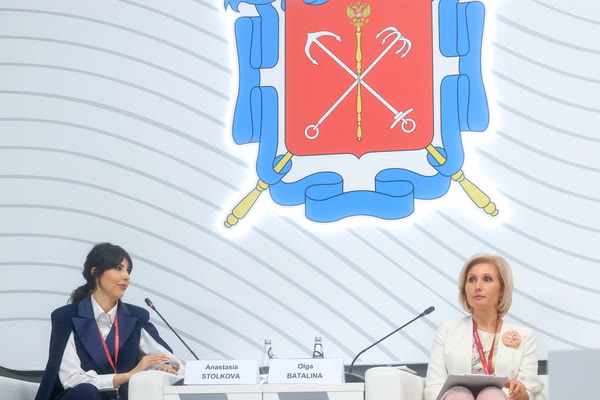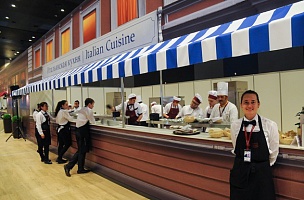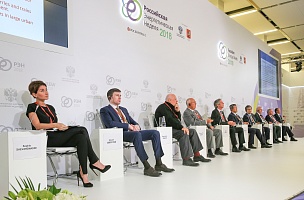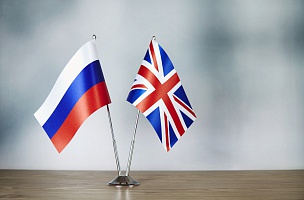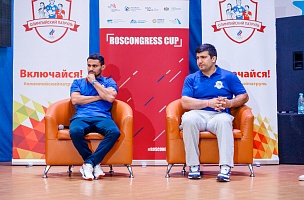KEY CONCLUSIONS
A cultural code is formed on the basis of family and society
“The cultural code is what we are now trying to return to. We are trying to return to reference points for our values. <...> This is primarily about cultivating habits. Health is not an everyday value from the outset, because a person already has it. The most difficult thing is fostering a culture of behaviour aimed at preserving what was given at birth,” Natalia Agre, Director, Institute for the Study of Childhood, Family and Education of the Russian Academy of Education.
Women are ambassadors of knowledge and health in the family
“We conducted a study to find out the level of health literacy. <...> Once again, women demonstrated their leadership. <...> Women are ambassadors of knowledge,” Oksana Drapkina, Director, National Medical Research Center for Preventive Medicine of the Ministry of Health of the Russian Federation.
“Women are the source of life. They are mothers, wives, and house doctors. Women create a family atmosphere and teach the whole family,” Saniyam Koval, President, Give Sunlight Charity Foundation.
The pandemic expedited the process of digitalizing day-to-day life and reviving spiritual values
“Any challenge is also a time of opportunity. During the pandemic, we had to push ahead faster with processes that had been in the works for several years. The process of digitalizing and modernizing the social sphere was accelerated largely due to the fact that people could not go to collect physical documents. They needed to be offered this service online. People could not gather at social protection centres when seeking help – it all had to be done remotely. These accomplishments will remain with us forever. We will move forward with them. Of course, everything depends on how we respond to these challenges. I believe that here in Russia, we fully capitalized on the opportunities that emerged during that period,” Olga Batalina, First Deputy Minister of Labour and Social Protection of the Russian Federation.
“The pandemic, like any challenge, was always about opportunities. <...> The volunteering sector existed before the launch of the In This Together initiative. However, the pandemic showed how people could come together and provide targeted support,” Maria Afonina, Vice Rector for Learning Activities, SENEZH Educational Center, ANO Russia – Land of Opportunity.
PROBLEMS
The lack of a culture promoting a healthy lifestyle
“There is a serious gender disparity. The problem is that men don’t want [to look after their health – ed.]. Their motivation is different. Basically, other motivational factors could convince them to do so. For example, you could say that a healthy man is more successful at work, in their career. Any approach is fine. The main thing is to ensure that preventative measures are in place to help extend life expectancy,” Oksana Drapkina, Director, National Medical Research Center for Preventive Medicine of the Ministry of Health of the Russian Federation.
A crisis of family values
“The family is indeed the most important institution. But today, a family consisting of a single mother and her children often carry traditional values much more than the illusory nuclear family made up of a mother, father, son, and dog, in which the father fights, the neighbours occasionally call the police, and the police never come. The illusory, outmoded grouping of people may appear formally proper, but the truth is somewhat different,” Ekaterina Gordon, Head, Gordon & Sons legal company; public figure; Founder, Alimony Foundation.
The information space presents a threat to the consciousness of the younger generation
“Even if we’re talking about the most well-brought up parents with the most caring grandmothers and grandfathers, there’s still a television at home. And there is a major disparity between what we show children and the information space which is so focused on ratings,” Natalia Agre, Director, Institute for the Study of Childhood, Family and Education of the Russian Academy of Education.
“Children attending elite schools can end up going to the Bundestag in pursuit of grants, asking for forgiveness for the ‘crimes of the Soviet Army’. In this instance, everything matters – what our children listen to, what they watch, and what they read,” Irina Rudskaya, Professor, Higher School of Engineering and Economics, Peter the Great St. Petersburg Polytechnic University.
SOLUTIONS
The government can play an important role in fostering a cultural code and a healthy family
“The most dangerous thing in terms of social health is replacing an ideal with a shell. We must work together to oppose this. Each person should contribute in their own way. A mother should find the right heroes, a high-level government official should develop government policy, and civil society should point out what we shouldn’t do and what we’d like to see in our family and country,” Elena Istyagina-Eliseeva, Director, State Museum of Sport.
Preventing diseases and fostering a culture promoting a healthy lifestyle
“Preventative steps need to be taken before a child is born. It needs to start at the age of 14–15, when we understand that she will become a young lady, a mother. It’s important to introduce technology aimed at prevention. This should begin at pre-school, school, and university. Essentially, we need to prepare for the reproductive function. And this is necessary for men, too,” Oksana Drapkina, Director, National Medical Research Center for Preventive Medicine of the Ministry of Health of the Russian Federation.
A culture regulating digital communication is key to psychological health
“It’s not possible to ban children from using an app or visiting a certain webpage. So, that leaves us with just one option – education. Educating the parents, that is. You don’t need to teach children – teach yourselves. Very often, I see people in family restaurants all staring at their gadgets. That’s all well and good, but it deprives us of the chance to talk to and support one another,” Maria Afonina, Vice Rector for Learning Activities, SENEZH Educational Center, ANO Russia – Land of Opportunity.
For more information, visit the Roscongress Foundation’s Information and Analytical System at roscongress.org/en


